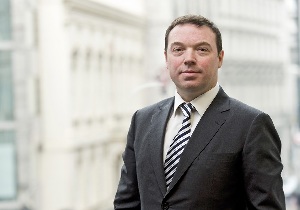FMA: Financial services changing fast
Financial Markets Authority chief executive Rob Everett says it might seem to observers that the financial services sector does not listen to its customers.
Friday, November 10th 2017, 6:00AM  1 Comment
1 Comment
by Susan Edmunds

He spoke at this year’s Finnotec conference, which discussed the future of fintech in New Zealand.
He said fintech was part of a “longer-term story but it also represents something genuinely new. For core retail products, fintech is not just about doing things more efficiently, it also promises a potential unbundling of the value chain.”
He said some of the changes had already happened in other industries but large financial services businesses had historically had “moats” around them because of the consumer trust in established brands and the advantages of scale.
Those were being broken down as technology reduced the benefits of being big, and demographics and consumers' changing relationships with financial services made them more receptive to new business models.
There was little consumer trust in the industry and some of the new technology tapped into that, he said.
"The concentration of financial services into a small handful of very large institutions that design, sell, advise on and, in some cases, insure the vast bulk of financial products, puts a special onus on those institutions to behave responsibly. And some have not, nor even competently, in some cases."
He said, as a participant in and observer of financial services, "it is hard not to reach a conclusion that says the industry does not actually listen to customers. Or at least it only listens to answers to the questions: How can I sell you more of this and how can I make more money from you?"
The industry had to be forced to do things that seemed "blindingly obvious" such as putting fees in dollar terms on KiwiSaver statements, and disclosing adviser commissions.
“Any challenger or disrupter businesses that look like they are addressing, really, the customers’ needs and wants will find financial services rich pickings.”
He said, as the regulator, the FMA would look to address harm or potential harm caused by fintech. "And it must balance risks to consumers with ensuring the right conditions exist for competition and innovation."
While the core role of the regulator did not change, how it did it would change a lot in the new environment.
"The rapid rise of innovation and change in financial services, especially in the use of technology and the desire to disintermediate the establishment model – means things are changing quicker than any legislature can keep up with."
Everett said the FMA was aware of its own limitations.
| « Quality mark questions | LVR restrictions to be reviewed » |
Special Offers
Comments from our readers
Sign In to add your comment
| Printable version | Email to a friend |



